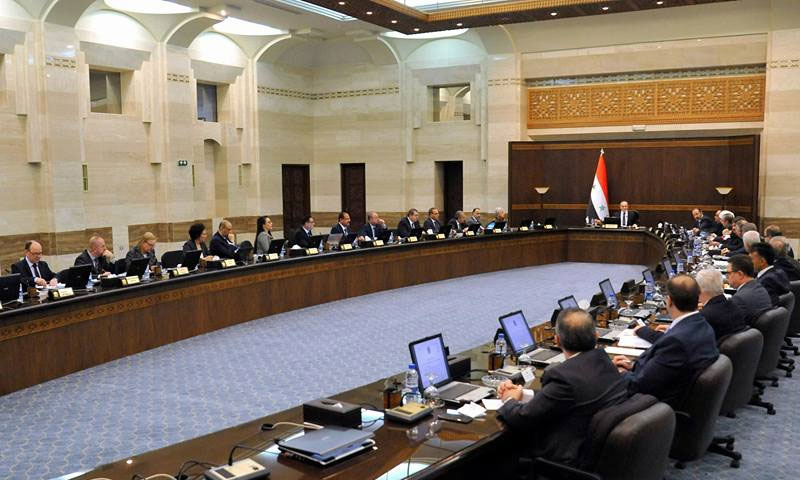



The Council of Ministers, under the government of the Syrian regime, announced its willingness to conduct a public offering, involving the bills and notes of the State Treasury.
On September 29, the Council published a statement on its official website, saying that the demand on offering the treasury’s bills, aims at funding investment projects in the sectors of economy and service, within an integrated assessment of the financial policy.
The Treasury bills are considered a ‘band-aid solution,’ capable of helping the government out of a financial crisis when it fails to obtain its dues through taxes and fees. However, this process is also sufficient to drown the government adopting it in futuristic debts.
The government, adopting this policy, becomes indebted to the Treasury, for the bills are priced according to the currency of the state offering them, generating fixed interest which an annual income guarantees.
The bills or the loans are usually used for the purpose of economic development and are called ‘production loans’ or ‘development loans’ that governments sometimes utilize to fund their wars, under the name of ‘war bonds.’
The Bank of England was the first to adopt the public offering policy, issuing the treasury bills in 1693 during Britain’s war with France.
“The regime is seeking to offer State Treasury bonds to China to meet the budget defect and cover the war expenses,” the Deputy Minister of oil, Syrian regime government dissident, Abduh Hussam ed-Din said in a former statement in 2012.
The step undertaken by the Council of Ministers corresponds to a time, when the head of the government of the Syrian regime, Imad Khamis, stated that the intervention policy, adopted by the government since 2016, providing for stopping direct intervention in the market of foreign exchange, has caused the depilation of a significant amount of foreign exchange reserves.
In a report published in April 2016, the World Bank pointed out that the Central Bank of Syria has squandered the financial reserves down to 700 million dollars, out of the 17 billion Syrian pounds found in its treasury in 2011, which the Central Bank of Syria refuted, saying that relationship is suspended with the World Bank, due to which the latter is not being provided with information.
if you think the article contain wrong information or you have additional details Send Correction